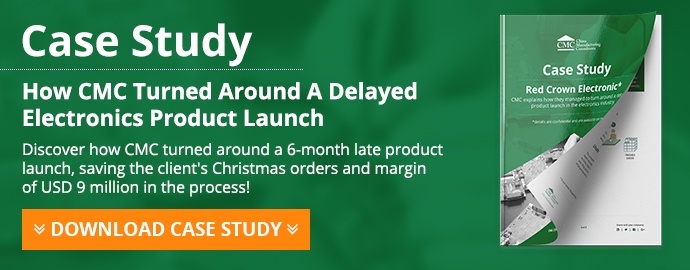Lifting The Lid On Some Of Apple's Electronics Manufacturing & NPI Secrets
I thought it was quite interesting for people not only in electronics manufacturing but also in other verticals.
Many people think i-products are designed in the USA and then the drawings are sent to Chinese factories where the manufacturing occurs.
Apple only does branding and cool product design, right?
Very wrong.
They have teams of hundreds of engineers in China to bridge that gap.
When they opened the Apple Shenzhen R&D centre, they said it would help "[their] engineering team work even more closely and collaboratively with [their] manufacturing partners". In other words, improve their NPI process.
Here is the money quote:
It's not designed and sent over, that sounds like there's no interaction. The truth is, the process engineering and process development associated with our products require innovation in and of itself. Not only the product but the way that it's made, because we want to make things in the scale of hundreds of millions, and we want the quality level of zero defects. That's always what we strive for, and the way that you get there, particularly when you're pushing the envelope in the type of materials that you have, and the precision that your specifications are forcing, requires a kind of hand in glove partnership. You don't do it by throwing it over the chasm. It would never work. I can't imagine how that would be.
Let’s unpack it.
They do ‘process engineering and process development’: Working with the manufacturers to adjust (and innovate when needed) their production processes. It means to prepare the tooling, the testing stations, confirm the process control plan, ensure measurements are accurate and precise, training the workforce, and so on and so forth.
They want to “make things in the scale of hundreds of millions”: They need pilot runs to confirm that the processes developed for each production are capable of high volumes and that no bottleneck will hold back capacity.
They state “we want the quality level of zero defects”: during the process development phase, they ensure processes are capable of holding very narrow specifications, they mistake-proof operations, and so on.
Can Apple find these skills among the best electronics manufacturers in China? Of course they can.
China has moved into very advanced manufacturing, so you find in China the intersection of craftsman kind of skill, and sophisticated robotics and the computer science world. That intersection, which is very rare to find anywhere, that kind of skill, is very important to our business because of the precision and quality level that we like.
Process engineering and development can be really complex.
I visited ICT--they manufacture, among other things, the AirPods for us. When you think about AirPods as a user, you might think it couldn't be that hard because it's really small. The AirPods have several hundred components in them, and the level of precision embedded into the audio quality--without getting into really nerdy engineering--it's really hard. And it requires a level of skill that's extremely high.
Cook’s main purpose, it seems, was to flatter Chinese people. He insisted on the people’s skills in this country, especially the “almost 2 million application developers in China that write apps for the iOS App Store” who are “some of the most inspiring and entrepreneurial in the world”. I fully agree.
In his praise, he said things we don’t agree with: “The vocational expertise is very very deep here” – Really? So why is it so hard to find good electrical engineers for maintenance, good tooling experts, etc.? Most Chinese factories struggle a lot with this. And one reason is, the smart kids all want to be in an office and have no desire to work on the shop floor…
He even belittles the US’s skills and gets his facts wrong: “In the US you could have a meeting of tooling engineers and I'm not sure we could fill the room. In China, you could fill multiple football fields.” That might be true in the electronics industry alone, but what about the very capable tooling specialists in automotive, furniture, and so on??
--
If you can access YouTube, you can watch the interview here:
Your Thoughts...
What do you think of Cook's speech? Does your company develop new products and does all the NPI work the right way? What are some of the gaps that might hinder performance once mass production is launched? Please share your thoughts, experiences, and questions as a comment below. We will happily respond.




